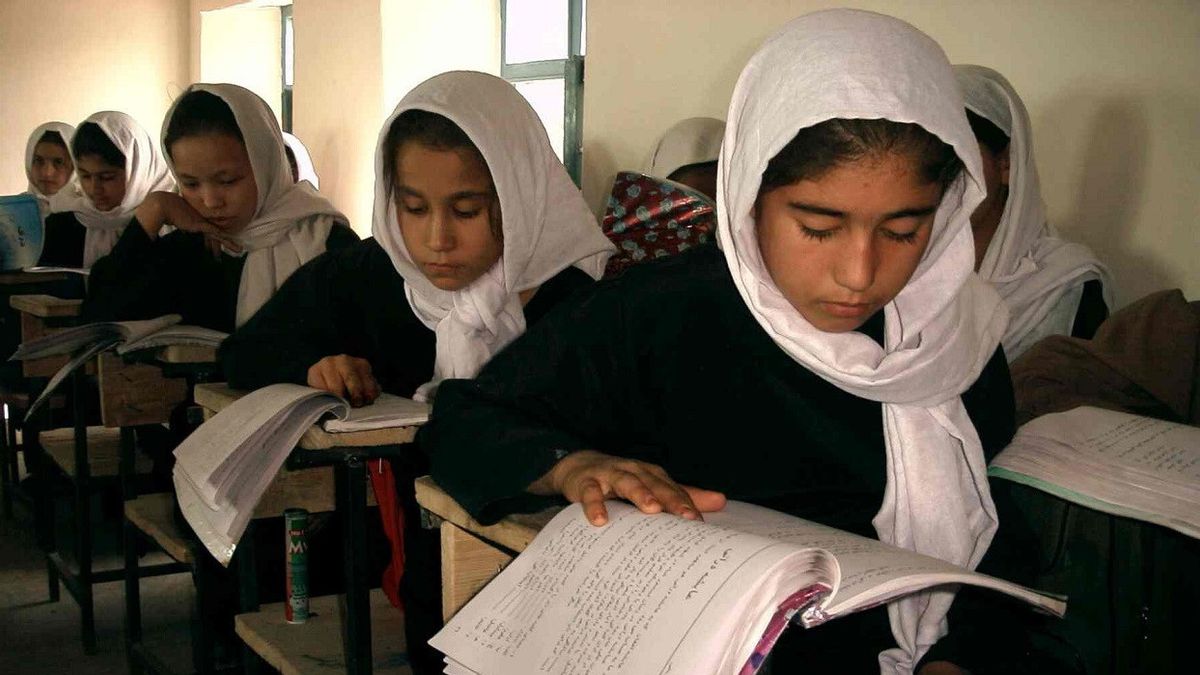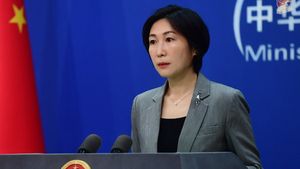JAKARTA - More than 20 top UK universities have pledged to offer free courses to Afghan women, as long as the Taliban bans women from accessing the country's universities.
The ruling Taliban in Afghanistan announced last month that women would no longer be able to study at universities and higher education institutions. Institutions are asked to implement the ban as soon as possible.
Now, a number of UK universities have teamed up through FutureLearn to offer free access to digital learning platforms to women in Afghanistan.
Girls and women with internet access, will be able to study more than 1,200 courses from leading institutions at no cost to themselves.
FutureLearn, founded by the Open University in 2012, delivers courses on behalf of about a quarter of the world's top 200 universities.
Twenty-six of the UK's top 30 universities are FutureLearn partners, including 21 of the 24 Russell Group institutions.
Jo Johnson, chairman of FutureLearn, said the move would provide a "lifeline" for those who want to learn.
"For girls and women who can access the internet and have time, this can be a lifesaver," he said, citing The National News, January 3.
“While this is certainly not a panacea – poor connectivity, poverty and language barriers mean many women may not be able to access material – it can play a valuable role in enabling women in Afghanistan to assert their inalienable human right to education," he said.
Meanwhile, Lord Mark Malloch-Brown, president of the Open Society Foundation, welcomed the initiative to give women access to free education.
"The Taliban thought the world had forgotten them," he said.
"FutureLearn's commendable move to open up its platform to women who have been denied their rights under this regime, will play a useful role in keeping education affordable to those with an internet connection."
"This is a welcome sign that our commitment to fighting for human rights for all Afghans remains strong," he said.
The move to bar women from higher education is one of the latest moves by the Taliban, to step up restrictions on women's rights since their takeover of Afghanistan in 2021.
This has sparked international condemnation, as well as protests in the country.
The UAE and Saudi Arabia have led calls for the decision to be overturned. Meanwhile the Foreign Ministers of Australia, Canada, France, Germany, Italy, Japan, Netherlands, Norway, Spain, Switzerland, UK, US and EU High Representative also strongly condemned the move.
SEE ALSO:
"A stable, economically viable and peaceful Afghanistan is only attainable and sustainable if all Afghans, including women and girls, are able to participate fully, equally and meaningfully in contributing to the future and development of the country," they said in a joint statement.
Separately, there are fears that up to 35 of Afghanistan's 140 private universities will close as a result of the move – affecting up to 70.000 female students.
One of the Taliban's ministers of higher education, Nida Mohammad Nadim, defended the ban, saying it was necessary to prevent gender mixing in universities. He also claimed some of the subjects violated Islamic and Afghan values.
The English, Chinese, Japanese, Arabic, and French versions are automatically generated by the AI. So there may still be inaccuracies in translating, please always see Indonesian as our main language. (system supported by DigitalSiber.id)


















